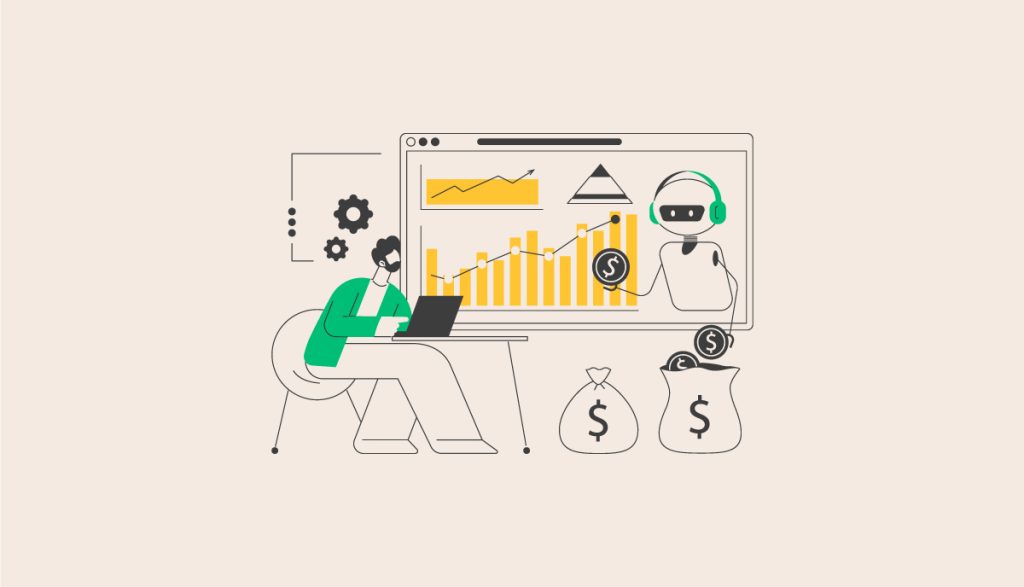

TAKEAWAYS
In recent years, the accounting sector in Singapore and around the world has seen significant transformations largely driven by advancements in artificial intelligence (AI) and automation technologies. As these tools become more integrated into accounting practices, they promise substantial changes in how accountants work and deliver value. While businesses are gradually integrating AI into their accounting practices, accountants are also worried about the future of their jobs. In the World Economic Forum Future of Work Report 2023, accounting jobs are listed among the top 10 jobs impacted by AI. To truly understand how AI will impact the accounting industry, it is crucial to survey the current landscape of AI adoption in the accounting industry.
The top three critical areas of accounting that have seen widespread use of AI are in planning and analytics, bookkeeping, and enterprise resource planning. Each of these areas has seen innovations that not only streamline operations but also enhance accuracy and efficiency.
1) Planning and analytics
Planning and analytics has seen the earliest adoption of AI across all areas in accounting. In this area, AI tools are used to process large volumes of data to provide insights that were previously inaccessible. Advanced and specialised techniques are also used to enhance financial forecasting and risk assessment, enabling accountants to make informed decisions quickly. One of the biggest use cases is in fraud detection. In fraud detection, AI is used to analyse past and current data to identify suspicious transactions and spot anomalies. Other enterprise uses include supplier risk assessment and cashflow forecasting. Some solutions leverage on generative AI (gen AI) to provide narrative, for instance, by providing a simple chat interface overlay that explains the underlying analytics and data to business users. This helps to further simplify the insights extraction and analysis of accounting data.
2) Bookkeeping
Traditional bookkeeping involves a lot of manual data entry and reconciliation, which can be time-consuming and prone to errors. AI has significantly improved this area by automating these tasks, ensuring data is entered in real time and with fewer mistakes. With the adoption of gen AI, important information can be easily and accurately extracted from financial documents such as invoices. Automated bank reconciliation has also seen significant improvements with smarter matching of records through the use of gen AI. For instance, general ledger entries are automated in many existing accounting systems through the use of business rules and AI. Overall, many of the tedious and time-consuming tasks in bookkeeping are being increasingly automated and streamlined through the use of AI, leaving accountants to focus on higher-value tasks such as advisory.
3) Enterprise resource planning (ERP)
AI adoption in ERP systems has also gained quick traction. AI has allowed businesses to automate routine tasks, gain access to real-time operational insights, as well as improve overall operational efficiency and resource management. An impactful and common use case is using AI for forecasting sales and purchasing needs. This provides business owners with critical information to optimise inventory management. There is significant progress in the optimisation of inventory management. We are seeing businesses automating larger portions of their purchasing and inventory management workflows. Compliance tracking is also another use case; here, AI is used to automate the tracking and monitoring of critical operations, and to identify potential non-compliance to the relevant process owners. This integration helps businesses to minimise resources for manual oversight.

The integration of AI into accounting practices has brought several benefits to accountancy and finance professionals. This has significantly improved productivity. With AI handling routine tasks, accountants can now focus on strategic activities such as analysis, advisory services, and supporting decision-making. This shift not only enhances the value they bring to their roles but also improves job satisfaction by engaging them in more meaningful and intellectually rewarding work. We see evidence that some tasks are being replaced through automation; however, new tasks have emerged through the use of AI. Additionally, AI-driven tools provide accountants with deeper insights into financial data, allowing them to identify trends and patterns that would be difficult to detect manually. This capability enables them to offer more proactive advice and solutions to their clients or stakeholders, further enhancing their role as strategic partners in business.
This is great news for the accountancy industry. At present, we are experiencing a decline in the global supply of new accounting talents. This is keenly felt in Singapore, with our ongoing accounting talent crunch. Hence, the adoption of AI in accounting will be more of a boon than bane for many accounting professions and businesses. AI will eventually be another useful tool in the accountants’ arsenal, similar to how spreadsheets transformed the accounting industry decades ago.
While the benefits of AI in accounting are clear, it’s important to approach its integration with caution. Without good design, governance and oversight, AI could be misused or cause adverse impacts on people. In the HR industry, Amazon’s AI recruiter was taken down after it was discovered to be biased against women in the job application screening process. In accounting, areas such as tax accounting and advisories are especially vulnerable to errors and bias that might be propagated by AI.
Although AI technologies are advancing at an incredible speed, it is crucial that the development of AI technologies is human-centric, focusing on augmenting the skills of human accountants rather than replacing them. A common human-centric design would be to leverage AI as a recommender or decision support, informing the accountant of the important and key insights, with the final decision to be made by the accountant. This human-in-the-loop approach ensures that there are sufficient safeguards especially for workflows with low error tolerance, and allows full control of the AI tool by the accountant. Transparency and attribution are also important components to be considered when developing human-centric AI tools.
For AI to be truly valuable, it must be developed with an understanding of the accounting profession’s unique needs and the challenges professionals face. It should aim to complement the accountants’ expertise, enhance their capabilities, and allow them to take on higher-value tasks that require human judgement and creativity.
As the use of AI proliferates and becomes a norm in the accounting sector, it offers exciting opportunities for professionals to enhance their roles and contribute to business success in new ways. However, the integration of AI must be managed wisely, with a focus on creating tools that assist rather than replace the human professionals at the heart of the industry. Accounting professionals should also learn and engage with these technologies actively, to understand their potential and contribute to their development. By doing so, they can ensure that AI in accounting evolves in a way that maximises its benefits while remaining aligned with the core values and needs of the profession. This thoughtful approach to adopting AI will not only transform the accounting landscape but also ensure that it does so in a way that is both innovative and sustainable.
Lee Gang is Founder and CEO, ELGO Technologies.